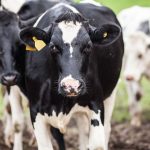
Why You Can’t Claim Tax Deductions on Repairs to Recently Purchased Business Assets
May 6, 2025
Contract Milking Tax: Your Complete Guide to Making the Jump Next Season
May 9, 2025Livestock Valuation Methods: NAMV vs NSC – A Complete Guide for New Zealand Farmers
When it comes to valuing livestock for end-of-year financial reporting and tax purposes, New Zealand farmers face an important decision between two main methods: National Average Market Value (NAMV, also known as the herd scheme) and National Standard Cost (NSC).
Each method carries distinct implications for tax obligations, financial reporting, and long-term planning strategies. Understanding these differences is crucial for making an informed decision that aligns with your farming operation and business goals.
National Average Market Value (NAMV) / Herd Scheme
The NAMV method, commonly referred to as the herd scheme, bases livestock valuations on average market values determined annually by Inland Revenue. These figures reflect actual market data collected across New Zealand and are published each May for different livestock classes and categories.
Key Features of the NAMV Method
Market-Based Valuations
Under this system, livestock is valued using IRD’s annually published rates, which are based on nationwide surveys conducted at April 30th. Your livestock value is determined by these standardized rates rather than actual purchase or sale prices for individual animals.
Capital Asset Treatment
Livestock under the NAMV method is treated as a capital investment. Year-to-year value fluctuations don’t trigger immediate tax consequences unless animals are sold or disposed of. This approach provides stability in tax planning and reduces volatility in annual tax obligations.
Tax-Free Natural Increase
One significant advantage is that animals bred on-farm (natural increase) enter the scheme at NAMV rates without creating immediate taxable income. Tax obligations only arise when animals are sold above their recorded scheme value.
Important note: When initially electing into the herd scheme, existing livestock is revalued from book value to NAMV. If NAMV exceeds current book value, the difference becomes taxable income in the election year.
Simplified Record-Keeping
Once livestock enters the herd scheme, there’s no requirement to track individual animal costs or production expenses for valuation purposes. This significantly streamlines year-end accounting processes and reduces administrative burden.
Long-Term Commitment
The NAMV method is generally considered a permanent decision. Once a livestock class is placed in the herd scheme, those animals must remain under this valuation method, ensuring consistency in financial reporting.
Who Benefits from NAMV?
The NAMV method particularly suits farmers who:
- Breed and retain livestock long-term
- Prefer consistent, less volatile year-end financial results
- Focus on long-term business planning and wealth accumulation
- Want simplified accounting and record-keeping processes
National Standard Cost (NSC)
The NSC method values homebred animals using standard cost rates set annually by Inland Revenue for each class and age group. Purchased young stock begins at purchase price, with published breeding, rearing, and growing (BRG) costs added annually as animals mature. Once reaching breeding age, cost additions cease, and the accumulated cost remains fixed until disposal.
Key Features of the NSC Method
Cost-Based Valuations
IRD annually establishes national standard costs reflecting typical expenses for raising animals to maturity. Mature livestock maintains this accumulated cost value until sold or disposed of, regardless of market value fluctuations.
Trading Stock Treatment
Livestock under NSC is treated as trading stock (inventory). Annual changes in numbers and values create immediate tax consequences, impacting profit and tax obligations each year.
Inherent Volatility
Because livestock number and value changes are recognized annually as taxable income or deductions, profit and tax obligations can fluctuate significantly, particularly with large holdings of mature or trading stock.
Broader Application
NSC can be applied to livestock classes not eligible for NAMV, including lambs, bobby calves, and other young animals, providing greater flexibility in valuation approaches.
Increased Administration
This method requires more detailed record-keeping, including careful tracking of costs, stock movements, and value changes throughout the year.
Who Benefits from NSC?
The NSC method works well for farmers who:
- Regularly buy and sell livestock as part of their trading operations
- Manage early-stage livestock ineligible for NAMV
- Want to maximize deductible expenses, including livestock value decreases
- Operate more transactional, shorter-term livestock enterprises
NAMV vs NSC: Detailed Comparison
| Aspect | NAMV (Herd Scheme) | NSC |
|---|---|---|
| Valuation Basis | Market-based IRD rates | Cost-based IRD rates |
| Tax Treatment | Capital asset | Trading stock |
| Annual Value Changes | Not immediately taxable | Immediately taxable/deductible |
| Natural Increase | Tax-free entry | Taxable as income |
| Record-Keeping | Simplified | More detailed |
| Volatility | Lower | Higher |
| Livestock Classes | Limited to eligible classes | All classes including young stock |
| Long-term Commitment | Generally permanent | More flexible |
Which Valuation Method Should You Choose?
Selecting between NAMV and NSC requires careful consideration of multiple factors specific to your farming operation:
Consider NAMV If You:
- Operate a breeding-focused enterprise with long-term livestock retention
- Prefer predictable tax obligations and financial reporting
- Want simplified accounting processes
- Focus on building long-term asset value
- Have eligible livestock classes for the herd scheme
Consider NSC If You:
- Regularly trade livestock as part of your business model
- Manage livestock classes not eligible for NAMV
- Need flexibility to change valuation methods
- Want to claim immediate deductions for livestock value decreases
- Operate shorter-term, more transactional livestock enterprises
Professional Guidance is Essential
The choice between NAMV and NSC isn’t just about immediate tax implications—it affects long-term business strategy, succession planning, cash flow management, and overall financial performance. Key considerations include:
- Business Model Alignment: Your chosen method should reflect how you actually operate your farming business
- Cash Flow Impact: Consider how each method affects annual tax obligations and cash flow requirements
- Long-term Planning: Evaluate implications for business growth, succession, and retirement planning
- Administrative Capacity: Assess your ability to manage the record-keeping requirements of each method
Frequently Asked Questions
Q: Can I change from one method to another after I’ve made my choice?
A: Generally, the NAMV (herd scheme) is considered a long-term commitment, and livestock in the scheme must remain under this method. However, there may be specific circumstances where changes are possible. Consult with your accountant about your specific situation.
Q: What happens if I use NAMV for some livestock classes and NSC for others?
A: Yes, you can use different valuation methods for different livestock classes. For example, you might use NAMV for your breeding cattle and NSC for young stock or sheep.
Q: How are the NAMV and NSC rates determined each year?
A: IRD conducts annual surveys to establish both NAMV rates (based on market data at April 30th) and NSC rates (based on typical breeding, rearing, and growing costs). These rates are published around May each year.
Q: What are the tax implications when first entering the NAMV scheme?
A: When you elect into the herd scheme, your existing livestock is revalued from its current book value to NAMV. If the NAMV is higher than your book value, the difference becomes taxable income in the year you enter the scheme.
Q: Can I use NSC for livestock that aren’t eligible for NAMV?
A: Yes, NSC can be used for all livestock classes, including those not eligible for NAMV such as lambs, bobby calves, and other young animals.
Q: Which method is better for cash flow management?
A: NAMV generally provides more predictable cash flow because value changes don’t create immediate tax consequences. NSC can create more volatile cash flow due to annual tax implications of value and number changes.
Q: How does each method affect my farm’s balance sheet?
A: Under NAMV, livestock appears as a capital asset with relatively stable values. Under NSC, livestock is trading stock that can fluctuate based on numbers and accumulated costs, potentially creating more balance sheet volatility.
Making the Right Choice for Your Farm
Choosing between NAMV and NSC is a strategic decision that extends far beyond simple tax considerations. It influences your farm’s financial reporting, tax planning, cash flow management, and long-term business strategy.
The optimal choice depends on your specific farming operation, including how you manage livestock, your business goals, cash flow requirements, and long-term plans. There’s no universally “correct” choice—only the method that best aligns with your unique circumstances and objectives.
Working with an experienced agricultural accountant ensures you understand the full implications of each method and make an informed decision that supports both your immediate needs and long-term goals. They can model different scenarios, assess tax implications, and help you implement the chosen method correctly.
Take the Next Step
Choosing the right livestock valuation method is crucial for your farm’s financial success. Don’t navigate this important decision alone—professional guidance can make all the difference in optimizing your farm’s financial position.
At Business Like NZ, our team of accounting specialists understands the unique challenges facing New Zealand farmers. We work across New Zealand, giving you access to expert advice without leaving your farm. Our certified Xero Platinum Partner status and experience with thousands of businesses means you’re getting proven expertise tailored to your specific needs.
Whether you’re just starting out, reconsidering your current valuation methods, or planning for the future, we’re here to help. Our agricultural accounting experts can assess your specific situation, model different scenarios, and guide you toward the most tax-efficient approach that aligns with your business goals.
Ready to optimize your livestock valuation strategy? Book a call with our team today to discuss your farming business and explore how we can support your accounting requirements. Let’s work together to ensure your livestock valuation method supports your farm’s success now and into the future.
Contact us today:
- Phone: 09 262 0726
- Email: info@blnz.co.nz
Don’t let uncertainty about livestock valuation methods hold back your farm’s potential. Get expert guidance and make confident decisions about your agricultural business’s financial future.




